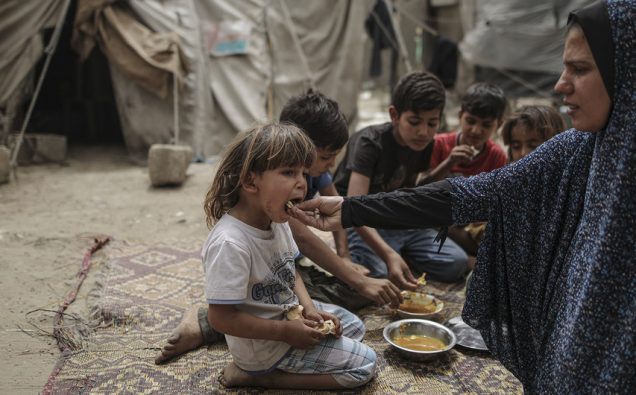
The collapse of the Black Sea Grain Initiative is feared to ratchet up the prices of essential food items and slow down supplies in the face of the Ukraine war, African conflicts, climate-related floods and famines, and a tenuous economic recovery from the pandemic.
Russia and Ukraine are among the biggest providers of staple food items, and the Black Sea deal came as a relief to the world where the number of hungry people has already touched 780 million people. The two countries will lose millions, especially Ukraine, which is in the second year of the war with its powerful neighbor. In addition, Moscow and Kyiv also export fertilizers.
Moscow has obviously decided to use grain as a weapon of war since it can make money through its energy trade, while Ukraine will lose its vital earnings. But for the world, the International Monetary Fund estimates, the termination of the Black Sea Initiative could result in a 10 to 15 percent jump in food prices.
The United States has warned that by “weaponizing food” Russia is denying food to those who need it and causing a surge in food prices.
‘s weaponization of food
The United Nations says the export of millions of metric tons of food from Ukrainian ports, together with the UN’s parallel accord with Russia on the export of food and fertilizer, helped stabilize global food security. The world body chief said this week that the UN-brokered accord that facilitated the export of more than 30 million tonnes of Ukrainian grain to global markets via three Black Sea ports expired on 17 July.
“At a time when the production and availability of food is being disrupted by conflict, climate change, energy prices, and more, these agreements have helped to reduce food prices by over 23 percent since March last year,” UN Secretary-General António Guterres said.
Besides conflict-wracked countries, it is the vulnerable communities in the least developed and developing countries that will face more hardships like hunger and poverty due to shortage of supplies and price-hike.
“With the termination of the Black Sea Initiative, the most vulnerable will pay the highest price,” Antonio says.
The World Food Programme (WFP) says it shipped 725,000 tons to support humanitarian operations in Afghanistan, the Horn of Africa, and Yemen, relieving hunger in some of the world’s hardest-hit regions.
Now, with no end to the Ukraine war in sight, the disruption in food supplies would put the vulnerable segments under much more pressure facing inequality, discrimination, conflicts, and deadly consequences of floods, fires, and famines.
The war has damaged Ukraine’s agriculture and food production, disrupted supply chains and exports, increased production costs, and caused widespread mine contamination. The e Rapid Damage and Needs Assessment, published in February 2023, says Ukraine’s production of grain and oilseeds decreased by 37 percent in 2022.
Apart from the ongoing challenges, the waste of food also exacerbates uncertainty. Almost one-third of all food produced globally is lost or wasted and nearly three billion people cannot afford healthy diets, the UN says. Floods have also wasted crops grown in countries like Pakistan, considered one of the biggest wheat producers.
Yet, it is not just the vulnerable or the least developed communities or counties that will suffer from any more food shortages. The political turmoil spawned by such dire situations could easily metastasize, and engulf the entire nations and regions in a wave of unrest.
Associate Editor Huma Nisar contributed to this report.













